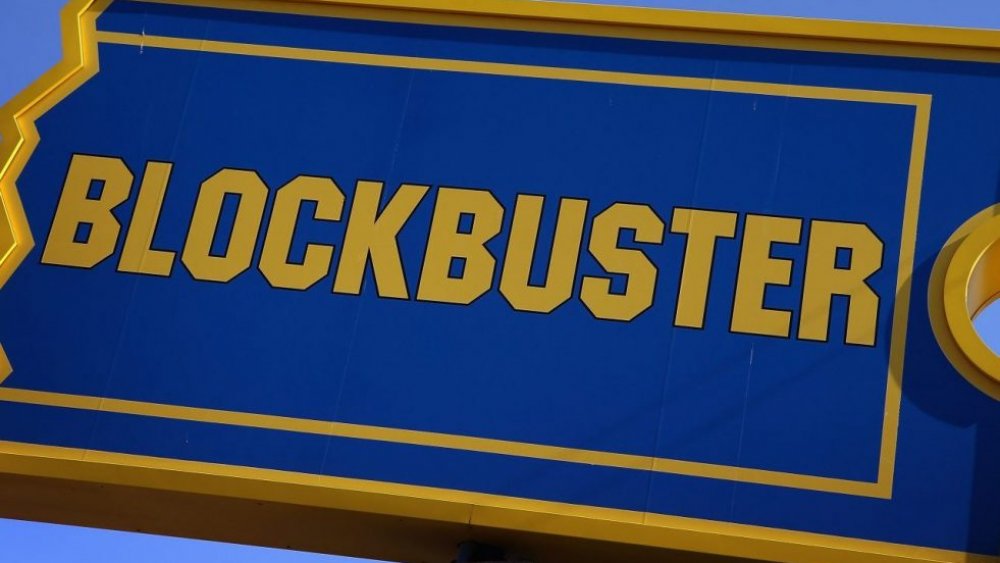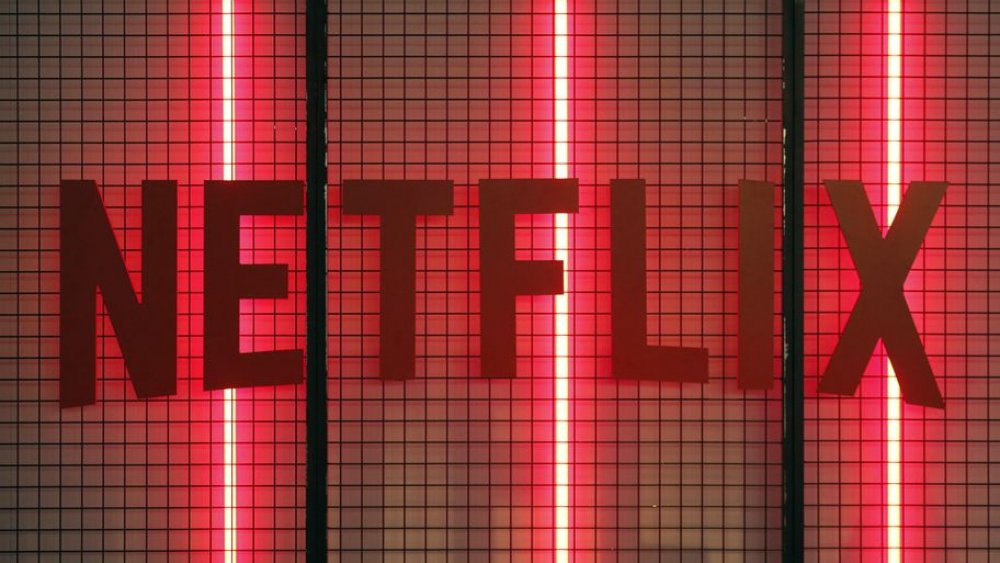Why Blockbuster Passed On Buying Netflix Years Ago
Amid the economic madness of the "dot-com" boom of the late '90s, there was no particular shortage of stories about struggling startups eventually sticking it to their billion dollar corporate competitors. What those stories tend to overlook is that many of the Davids at one time or another likely tried to sell out to the Goliath they were fighting. But in the history of those complex business doings, not many Goliaths missed their chance at economic glory quite as dramatically as Blockbuster Video.
As it happens, the mark they missed likely would've seen the one-time video rental king flourishing in the time of streaming, instead of becoming a long-shuttered relic of days past. For much of the '80s and '90s, Blockbuster Video was indeed the unrivaled champion of the video rental market, with families and cinephiles alike flocking to stores on a weekly basis and scouring the shelves for the latest Hollywood release or that little-seen foreign flick that never, ever seemed to have a copy in stock.
So secure was Blockbuster's market dominance throughout the 1990s, the video chain (once comprised of over 9,000 stores) barely bat a lash when an upstart internet company began making waves with their video-by-mail service. If excerpts from Netflix co-founder Mark Randolph's book That Will Never Work: The Birth of Netflix and the Amazing Life of an Idea (as published in GQ) are to be believed, former Blockbuster CEO John Antioco very nearly laughed in the faces of Randolph and Reed Hastings when they offered to sell their fledgling company to the video giant for the bargain basement price of $50 million.
Blockbuster apparently just couldn't see a future in streaming or mail order
Most business insiders would agree that no single company was more responsible for the downfall of Blockbuster Video than Netflix — save for Blockbuster itself, which might've been saved had Antioco made the acquisition. But if Randolph's account of Netflix's fateful Blockbuster pitch is accurate, it seems Antioco was almost rudely dismissive of their offer.
"Through Reed's pitch and Barry's windup, I had been watching Antioco," Randolph writes. "I had seen him use all the tricks that I'd also learned over the years: lean in, make eye contact, nod slowly when the speaker turns in your direction. Frame questions in a way that makes it clear you're listening. But now that Reed had named a number, I saw something new, something I didn't recognize, his earnest expression slightly unbalanced by a turning up at the corner of his mouth. It was tiny, involuntary, and vanished almost immediately. But as soon as I saw it, I knew what was happening: John Antioco was struggling not to laugh."
Netflix has obviously more than had the last laugh against Blockbuster (which went bankrupt in 2010), with the streamer continuing to dominate both the VOD market and the hyper-competitive original content game. Given Blockbuster's demise, it's easy to view Antioco's decision as monumentally misguided. That being said, the same GQ piece details a few eye-opening facts about late-'90s Netflix. For one thing, The company was roughly $50 million in debt at pitch time. Furthermore, the technology needed to sustain a streaming platform as we know it didn't yet exist, which made the company far from a solid investment.
Hindsight is truly 20/20 in business, though. And if Antioco had genuinely considered the potential of the acquisition, or seen a future in streaming, we'd likely all be adding titles to our Blockbuster queues these days.

